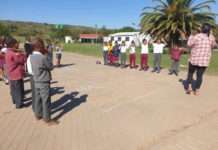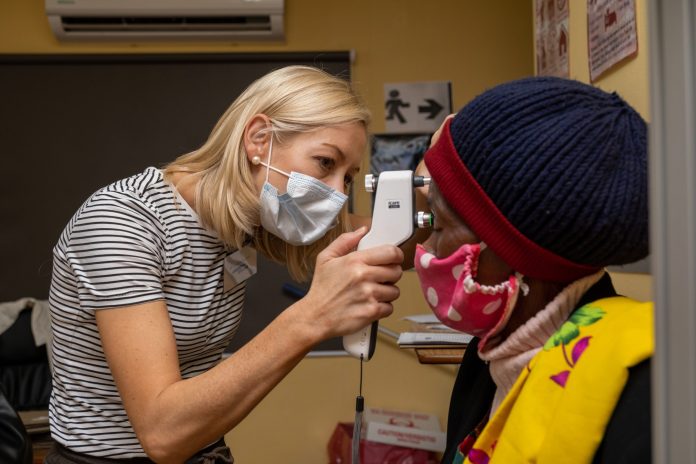Johannesburg, 21 June 21: Voluntourism isn’t new. Every year, millions of people from wealthy nations travel to developing countries hoping to do good, from building houses in Rwanda to rescuing children in Guatemala.
Many organisations have been established to tap into this trend, merging volunteering with tourism and attracting individuals who want to do good while also seeing a new part of the world.
Unfortunately, over the past few years, voluntourism has started to receive negative attention in the press, largely because of organisations that do more harm than good, and those that do not truly understand what communities need and what initiatives really make an impact on that community.
And yet there is a huge need for volunteers – provided there is a deep understanding of what a community needs, and the right skills are aligned with those needs.
“If you really want to do good, you can’t just assume you know what a community needs, especially if you aren’t from that community,” says Professor John Gear, volunteer coordinator at the Tshemba Foundation. “The Tshemba Foundation was created after its founders visited the Tintswalo area and asked the local hospital administrators what support they needed.
“One of the reasons why myself and my colleague, Rhian Twine, have joined the foundation is because of our deep roots in primary healthcare in South Africa. We understand the needs and restrictions after years in this space. Tshemba isn’t here to assume what’s required – we’re here to support the local rural community, the hospital and it’s outlying clinics with what they need, whether it’s medical volunteers or equipment.”
Voluntourism versus a Leave of Purpose
The Tshemba Foundation’s medical volunteer programme is designed to connect medical professionals with knowledge, skills, experience, and a deep desire to give back, with rural communities in need at the Tintswalo Hospital, a 423-bed public hospital located in Acornhoek in Mpumalanga, and its surrounding clinics.
Tshemba’s contemporary bush accommodation gives volunteers a beautiful space to spend their evenings after they spend their days doing important and much-need volunteer work at the hospital. However, as both volunteers and members of Tshemba’s team point out, this is a Leave of Purpose, it’s not voluntourism.
Dr Mary-Anne Hartley, who volunteers as a clinician in rural settings around the world for several months a year, believes the Tshemba Foundation is extremely well regarded amongst both South African and international volunteer communities as a highly effective organisation through whom each volunteer’s time generates meaningful impact.
“Unfortunately, the field of medical volunteering is quite polluted with many poorly effective, for-profit ventures that have now become known as ‘voluntourism,’” says Dr Hartley, adding that it can be difficult finding NGOs that support volunteer activities in an effective, ethical and responsible manner. “In this regard, the Tshemba Foundation certainly stands out, and my visit has further validated its excellent reputation for me.”
As Professor Gear highlights, the balance lies in understanding what the local community needs and supporting it.
A far-reaching impact
In addition to general medical care, during her stay at Tshemba and volunteering at Tintswalo hospital, Dr Hartley developed two capacity-building projects. The first was the implementation of a triage system that colour-coded patients according to severity categories. “Without this system in place, it was first-come-first-serve, which meant that a sprained ankle could get seen before a heart attack!”
Dr Hartley realised that this critical intervention needed to be supported by infrastructural change i.e.: the creation of consultation rooms in which triage could be undertaken. So, she put out a call for donations to the general public (which is still open) and chronicled the dramatic and touching transformation in her Rural Medicine blog.
“I was so overwhelmed with the generosity of strangers,” says Dr Hartley. “It can be surprising how such incredibly simple interventions can have such a massive impact”. Indeed, just this month of renovations on a shoe-string budget has had a remarkable effect: saving lives and protecting the dignity of one of South Africa’s most vulnerable and impoverished communities.
The second project, the RuralUS (Rural Ultrasound), is the result of Dr Hartley’s research group at the Swiss Institute of Technology (EPFL). “I brought with me several portable ultrasound probes and we set up a group-directed learning initiative with training sessions on point of care ultrasound adapted to the needs of rural health with telemedicine support via experts in Switzerland. We aim to implement a study site here, collecting data to train an AI model in the recognition of TB and COVID-19.”
Adding value to resource-limited rural settings
As a researcher in AI and global health, Dr Hartley believes it is critical to represent rural populations in medical literature to ensure that the next generation of medical tools are designed for the populations who need them most.
“It is places like Tintswalo that should be benefiting from international research funding, and I hope to establish a study here that will simultaneously improve the standard of care and capture the health care needs of the community.”
For Dr Hartley, volunteers have an important role to play in rural communities. “Tshemba’s volunteers come from a range of multidisciplinary backgrounds. They are even sometimes internationally renowned specialists in their fields. While some people may feel that to be a strange juxtaposition, I believe that their expertise is perfectly matched with the extreme needs within these often-isolated communities.”
Book your #LeaveOfPurpose today
While the Tshemba Foundation’s volunteer programme is best suited for longer stays, there are short-term opportunities available that can accommodate busy schedules while still maximising the impact of volunteering at Tintswalo and the local clinics in the area.
To find out more, visit https://www.tshembafoundation.org/our-volunteer-programme
– Ends –
Press Contact
Mantis Communications
Kerry Simpson
Tel: 079 438 3252
Email: [email protected]












